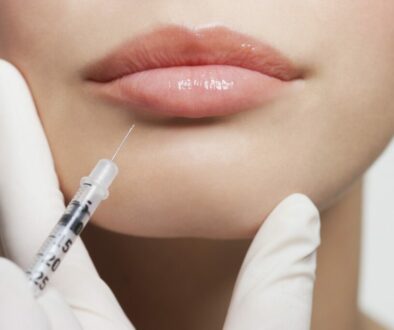The Ultimate Guide to Glowing Skin: Tips and Tricks
If you are struggling to get beautiful and healthy skin, this thorough guide to glowing skin is for you. Having glowing skin is a common desire for many individuals. Not only does it enhance our overall appearance, but it also reflects good health and vitality. Glowing skin is often associated with youthfulness and is a symbol of beauty across different cultures. In this ultimate guide, we will explore the importance of glowing skin and the numerous benefits it offers.
Why is glowing skin important?
Glowing skin is important for several reasons. Firstly, it boosts our self-confidence and enhances our overall appearance. When our skin looks radiant and healthy, we feel more comfortable and proud of our appearance. This increased confidence can positively impact various aspects of our lives, from personal relationships to professional opportunities.
Benefits of having glowing skin
Apart from the aesthetic appeal, having glowing skin offers several benefits. One major benefit is that it can help slow down the aging process. Glowing skin tends to have a smoother texture, fewer fine lines, and a more even tone. This youthful appearance can make us look more vibrant and energetic, giving us a more youthful appearance.
Factors Affecting Skin Health
Our skin’s health can be influenced by various factors, both internal and external. Understanding these factors is crucial in maintaining glowing skin.
Internal Factors:
- Genetic factors: Genetics play a significant role in determining our skin type and its characteristics. Some individuals are naturally predisposed to have healthier skin, while others may have a higher tendency for skin issues such as acne or dryness.
- Hormonal imbalances: Hormonal changes in the body can have a direct impact on the health of our skin. Fluctuations in hormonal levels, especially during puberty, pregnancy, and menopause, can lead to acne breakouts, increased oil production, and other skin concerns.
External Factors:
- Environmental pollution: Exposure to pollutants in the environment, such as air pollution and toxins, can damage our skin cells and contribute to premature aging. It is important to protect our skin from harmful pollutants by cleansing regularly and using antioxidant-rich skincare products.
- Exposure to sunlight: While moderate sun exposure is beneficial for the production of vitamin D, excessive sun exposure can lead to various skin problems, including sunburn, wrinkles, and an increased risk of skin cancer. It is crucial to use sunscreen and protective clothing to shield our skin from harmful UV rays.
- Unhealthy lifestyle choices: Poor lifestyle habits, such as smoking, excessive alcohol consumption, lack of sleep, and an unhealthy diet, can negatively impact our skin health. These habits can lead to dullness, dryness, and an increased risk of skin conditions like acne and inflammation.

Daily Skincare Routine for Glowing Skin
Creating a consistent skincare routine is essential for achieving and maintaining glowing skin. Here are some key steps to include in your daily skincare routine:
1. Cleansing:
- Cleansing is the foundation of any skincare routine. It helps remove dirt, excess oil, and impurities from the skin, allowing it to breathe and absorb other skincare products effectively.
- Choose a cleanser suitable for your skin type. For oily skin, opt for a foaming or gel cleanser, while those with dry or sensitive skin can benefit from a creamy or hydrating cleanser.
- Use gentle cleansing techniques, such as massaging the cleanser onto damp skin in circular motions, and then rinsing with lukewarm water. Avoid using hot water as it can strip the skin of its natural oils.
2. Toning:
- Toning is an often overlooked step that can bring numerous benefits to the skin. It helps balance the skin’s pH levels, tighten pores, and remove any remaining traces of dirt or cleanser.
- There are various types of toners available, including hydrating, exfoliating, and clarifying toners. Choose one that suits your skin’s specific needs.
- Apply toner using a cotton pad or by gently patting it onto the skin. Avoid rubbing harshly, as this can cause irritation.
3. Moisturizing:
- Moisturizing is vital for keeping the skin hydrated, nourished, and protected. It helps maintain the skin’s moisture barrier and prevents dryness and premature aging.
- Select a moisturizer suitable for your skin type. For oily skin, choose oil-free or lightweight moisturizers, while dry skin may benefit from richer, more emollient formulas.
- Apply moisturizer to clean, dry skin using upward circular motions. Focus on areas that need extra hydration, such as the cheeks and forehead.
4. Sun Protection:
- Sun protection is crucial for preventing sun damage, pigmentation, and premature aging. Whether it’s sunny or cloudy, UV rays can still harm the skin.
- Choose a broad-spectrum sunscreen with an SPF of 30 or higher to protect from both UVA and UVB rays.
- Apply sunscreen generously to all exposed areas of the skin and reapply every two hours or after sweating or swimming.
5. Exfoliation:
- Exfoliation helps remove dead skin cells, unclog pores, and promote cell turnover for a smoother, brighter complexion.
- There are two main types of exfoliation: physical and chemical. Physical exfoliation involves the use of scrubs or brushes, while chemical exfoliation utilizes alpha-hydroxy acids (AHAs) or beta-hydroxy acids (BHAs).
- How often you exfoliate depends on your skin type and sensitivity. Aim for 1-2 times a week for most skin types, but adjust accordingly if you have sensitive or acne-prone skin.
6. Hydration:
- Hydration is essential for maintaining plump, radiant skin. Besides moisturizing, incorporating other hydration strategies can further enhance your skin’s glow.
- Drink an adequate amount of water daily to hydrate your body and skin from within. Aim for at least 8 glasses (64 ounces) of water per day.
- Use hydrating facial sprays or mists throughout the day to provide an instant boost of hydration and refreshment to your skin.
By following a consistent daily skincare routine that includes cleansing, toning, moisturizing, sun protection, exfoliation, and hydration, you can significantly improve the health and appearance of your skin. Remember to choose products suitable for your skin type and listen to your skin’s needs. With dedication and patience, you can achieve the glowing skin you desire.
Conclusion
In conclusion, achieving and maintaining glowing skin requires a combination of a proper skincare routine, healthy lifestyle choices, and sometimes professional treatments. By understanding the factors that affect skin health and following the tips and an ultimate guide to glowing skin provided in this article, you can be on your way to achieving that radiant, glowing complexion you desire.
FAQs: Guide to Glowing Skin
How long does it take to see results?
The time it takes to see results can vary depending on several factors, including the current state of your skin, the specific skincare routine you follow, and your consistency in implementing it. Generally, it takes about four to six weeks of consistently following a skincare routine to notice significant improvements in your skin’s appearance and achieve a healthy glow.
Can genetics play a role in achieving glowing skin?
Yes, genetics can play a role in determining the characteristics and condition of your skin. Some individuals may naturally have healthier skin, while others may have a predisposition to certain skin concerns.
Is it necessary to visit a dermatologist for glowing skin?
Not everyone needs to visit a dermatologist specifically for glowing skin, as it depends on the individual’s unique skin concerns. If you have persistent or severe skin issues, such as acne, eczema, or excessive pigmentation, it may be beneficial to consult a dermatologist for professional guidance and treatment options.
Can stress affect skin health?
Yes, stress can have a significant impact on skin health. When we experience stress, our bodies release hormones like cortisol, which can disrupt the skin’s natural balance and lead to various issues such as acne breakouts, increased oil production, and inflammation.
Are expensive skincare products always better?
The effectiveness of skincare products does not solely depend on their price. Expensive skincare products may contain high-quality ingredients and advanced formulations, but this is not always the case. It is essential to consider the formulation, ingredients, and suitability for your skin type when choosing skincare products.
Also Read:



